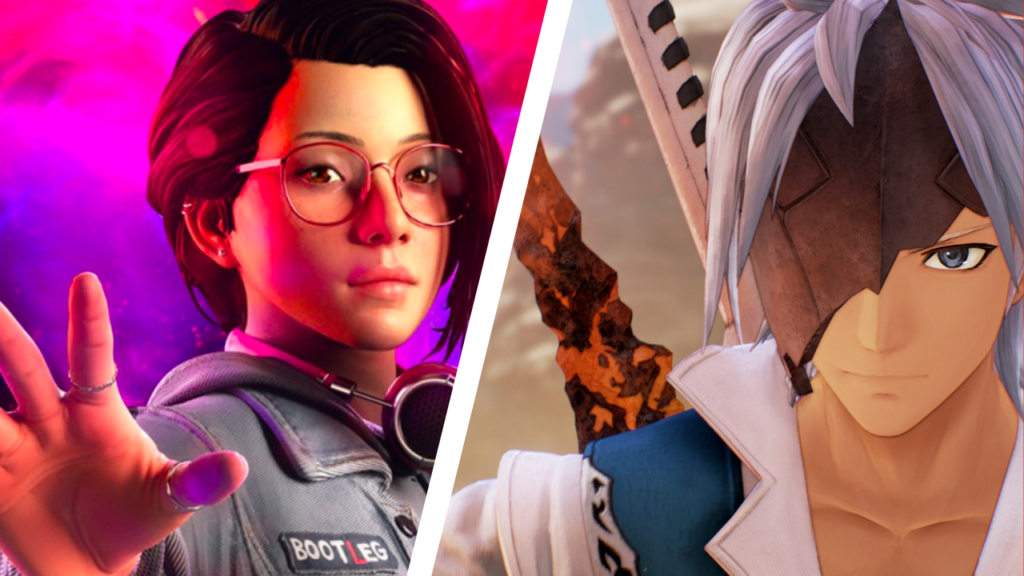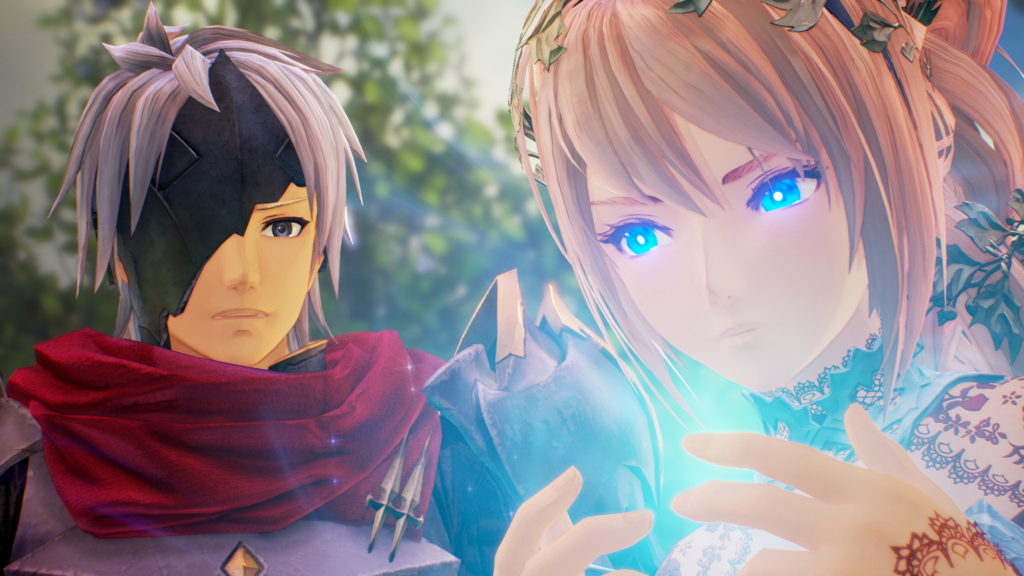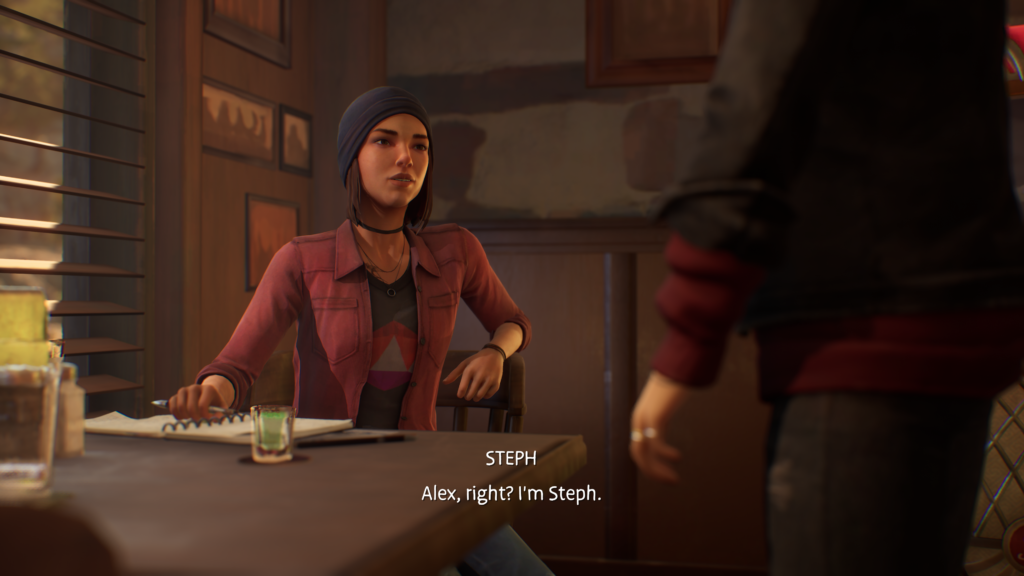
Tales of Arise forgot to take one thing from Life is Strange
In August, Game Informer revealed that the producer of Tales of Arise, Yusuke Tomizawa, took some serious inspiration from DontNod’s Life is Strange. Nearly a month after the game’s release, it’s easy to see how: the characters you play are a lot more mature, and despite the story’s tone shifting oddly at times, it’s a story that combines the fantastical with very real-life issues – much like Life is Strange.
However there’s one thing that, in my humble opinion, Tales of Arise didn’t take from the game that they really should have. And that can be summed up in one word: queerness.
Tales of Berseria is arguably one of the queerest games within the Tales of series. We follow Velvet Crowe, a young woman who can only taste blood and often shares heated conversations with her female companions. She also offers to eat them more than once which is… Yeah. Pretty fruity if you ask me.
Velvet isn’t the only character who is inherently queer within the subtext the game provides. As with most JRPG games, religion and religious symbolism features heavily within the game, and we find out that not only is apathetic witch Magilou a legate (see: a powerful, religious warrior) that was kicked out of service because she ‘felt too much’ but Velvet’s other companion, Eleanor, was also training to become one before she turned away from her order to follow the group’s own brand of villainy. Both Magilou and Eleanor are shunned due to their deeds, whether that be choosing to live for themselves or straying away from the heteronormative and structural society that demands them to be something they aren’t. Eizen, Rokurou, and even Laphicet could also be argued to be pretty damn queer too, but that’s a piece for another time.

Eagle-eyed players knew from the beginning that the romantic relationship between Shionne and Alphen, the game’s heroine and protagonist, was going to be key to bring the two, warring worlds of Rena and Dahna together. That was a given, and while I was a little bummed that this did indeed seem to be a game that wouldn’t be as queer as Berseria, romance in the Tales of series is enjoyable for the most part.
What I wasn’t expecting however was Tales of Arise pointedly shoving every male and female character together and making it so obvious that it became eye-roll-worthy.
While the romance between Shionne and Alphen was a given, the game’s constant push towards matching the other male characters with the female characters felt, dare I say it, a lot like the developers were playing a game of matchmaker. Now don’t get me wrong, matchmaking is fun – just look at how much I loved Fire Emblem: Three Houses – but it feels pretty pointed when the ‘important’ relationships between certain characters are only highlighted in the romantic sense. To be blunt, the way Tales of Arise conveyed romantic interest with characters like Rinwell and Law and Dohalim and Kisara negated some of the inherent fun of shipping in the first place.
Life is Strange is a game with queerness at its very heart: all of the protagonists you play throughout the series are queer, with Life is Strange: Wavelengths putting you in the shoes of Steph – a fan-favourite from the series who is also a lesbian. Even outside of the characters you meet, the world they inhabit is also inclusive and diverse. Steph has pride badges and flags, Chloe Price canonically shows no attraction to men with only Rachel Amber and Max Caulfield being of any romantic interest to her. Alex Chen is bi and proud of it. There is simply no ‘escaping’ how inclusive Life is Strange is in regards to the LGBTQIA+ community, both in and outside of the game.

So it’s disappointing that, with such obvious inspiration from Life is Strange, that Tales of Arise decided not to include queerness within its world. Despite Tomizawa-san wanting to capture the “human aspect” of Tales of Arise and become more mature with how it handles its characters, the game still lags behind reaching that completely by treating its characters like jigsaw puzzles that can only fit together meaningfully if paired with the opposite sex. It not only feels pointed at times, with small instances like Alphen only being able to be healed by Shionne despite Dohalim being a healer too, but male, but feels out of place just for the sake of protecting fragile, heteronormative sensibilities.
In many ways, Tales of Arise is a significant improvement from previous entries. Tomizawa-san certainly wasn’t lying when they said this game is more mature, and it’s definitely an evolution that’s pleased the majority of gamers considering how much the game has sold already. But in many ways, it says a lot that Tales of Berseria portrayed its female and male characters in a way that didn’t have them being paired up every time something significant happened within the main storyline, or everyone constantly pointing out that X did this so Y would notice. They could just be together.
All in all, Tales of Arise might be one of my favourite games in the entire series, but it let me down on the queer front in such a way that it’s hard not to wonder why it took mature storytelling away from Life is Strange, but not the series inclusive nature towards the LGBTQ+ community. At this point, queer fans aren’t even asking for a confirmed queer character or same-sex relationships, but mere crumbs that were shown in previous Tales games. It’s disappointing that Tales of Arise couldn’t even provide that.






